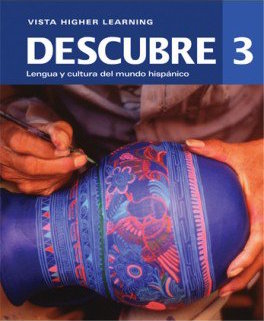
All Solutions
Page 104: Practica
* **averiguar:**: find out
**decir**: say
**estar**: be (temporary)
**freir**: fry
**haber**: there/be
**levantar**: get up
**limpiar**: clean
**llamar**: call
**ofrecer**: offer
**pasar**: pass
**preparar**: prepare
**quitar**: remove
**salir**: exit/go out
**ser**: be (permanent)
**terminar**: finish
**tocar**: touch/play
The first half of the sentence is an impersonal time expression, so the correct form of an adequate verb is **Eran** (from *ser*); the second subject is a plural third person, so the correct verb is **ofrecieron** (from *ofrecer*).
The first subject is a singular third person, so the correct verb is **pasaba** (from *pasar*); the second subject is also a singular third person, so the correct verb is **llamó** (from *llamar*). The third subject is a singular third person too, so the correct verb is **dijo** (from *decir*); and the last subject is an implicit singular third person (“la cena”) so the correct verb is **era** (from *ser*).
The first subject is a singular third person, so the correct verb is **preparaba** (from *preparar*); the second sentence is an impersonal time expression, so the correct verb is **era** (from *ser*).
The first subject is a singular third person, so the correct verb is **freía** (from *freír*); the second subject is also a singular third person, so the correct verb is **limpiaba** (from *limpiar*).
The first two subjects are a singular third person, so the correct verbs are **quitaba** (from *quitar*) and **llamó** (from *llamar*); the second sentence is an impersonal expression, so the correct verb is **Era** (from *ser*).
Both subjects are a singular third person, so the correct verbs are **ofreció** (from *ofrecer*) and **dijo** (from *decir*).
The first subject is a singular third person, so the correct first two verbs are **terminó** (from *terminar*) and **dijo** (from *decir*). The second part of the sentence is an impersonal expression, so the correct verb is **habían** (from *haber*). The subject of the last sentence is also a singular third person, so the correct verb is **salió** (from *salir*).
The first subject is an implicit singular third person, so the correct verb is **terminó** (from *terminar*); the second part of the sentence is an impersonal time expression, so the correct verb is **Eran** (from *ser*). The last subject is an impersonal singular third person, so the correct verb is **estaba** (from *estar*).
* Marta and Miguel
we
Paco
you (singular)
you (plural)
I
* eat
drive
sleep
listen to music
go to…
watch TV
* the alarm
friends
Juan Carlos
the doctor
the police
you (singular, formal)
* call on the phone
get the message
go out
ring
see the accident
* *Marta y Miguel dormían cuando Juan Carlos recibió el mensaje.*
Marta and Miguel were sleeping when Juan Carlos got the message.
* *Nosotros escuchábamos música cuando usted llamó por teléfono.*
We were listening to music when you called on the phone.
* *Paco conducía cuando vio el accidente.*
Paco was driving when he saw the accident.
* *Tú fuiste al hospital cuando sonó la alarma.*
You went to the hospital when the alarm rang.
* *Ustedes miraban la tele cuando el accidente salió en las noticias.*
You were watching TV when the accident was on the news.
* *Yo comía cuando los amigos llamaron por teléfono.*
I was eating when my friends called on the phone.
|Date | What happened?| Where and with whom?| What was the weather like?|
|–|–|–|–|
|el 15 de diciembre de 2008 (December 15th, 2008) | Conocí a Steven Spielberg (I met Steven Spielberg)| Estaba en Nueva York con mi hermano (I was in New York with my brother)| Estaba soleado (It was sunny)|
| el 5 de abril de 2012 (April 5th, 2012)| Compré mi primera cámara de fotos (I bought my first photo camera)| Estaba en la tienda con un amigo (I was in the store with a friend) | Había muchas nubes (there were many clouds)|
|el 13 de septiembre de 2013 (September 13th, 2013) |Fui a un concierto de Taylor Swift (I went to a Taylor Swift concert) |Estaba en el estadio con mi prima (I was in the stadium with my cousin) |Hacía mucho frío (It was very cold) |
|el 7 de octubre de 2020 (October 7th, 2020)|Me mudé a otra ciudad (I moved to another city) |Fui a Denver con mi mamá (I went to Denver with my mom) | Llovía mucho (it was raining a lot)|

